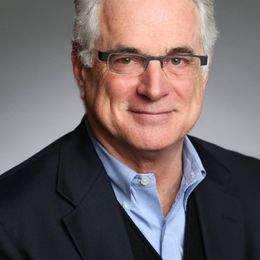Retired Doctors Return to Work for COVID-19
With health systems stressed, some states are asking for all hands on deck
Tired of 60- to 70-hour work weeks, Dr. Debra Caroli planned on retiring April 1, 2020. She recently decided to embrace part-time employment instead of working full-time as an anesthesiologist in Leesburg, Fla. Then came COVID-19.

“Even if I was going to retire, I wouldn’t,” Caroli, 58, says. “It’s all hands on deck.”
Governors in numerous states like Colorado, Illinois, North Dakota and New York are counting on retired (or soon-to-be retired) health care professionals to rejoin or stay with the workforce to combat the coronavirus pandemic.
Right now, Carson City doesn’t need her help. But if that time comes, she says she would likely provide critical support in prisons or at a community hospital — freeing other health care professionals to deal with the pandemic.
Illinois Gov. J.B. Pritzker slashed red tape by waiving state licensing fees, expediting license renewals and extending soon-to-be-expired licenses for health care professionals.
New York City Mayor Bill de Blasio said 1,000 retired health care workers answered the call for help within 24 hours.
North Dakota has heard from a couple of retired nurses willing to come back. The North Dakota Board of Nursing developed processes to get unretired nurses quickly into facilities if needed.
“We will expedite the movement from being retired to the bedside,” says Stacey Pfenning, executive director of the North Dakota Board of Nursing in Bismarck, N.D. “We want to make sure they’re refreshed on skills. Make sure that retired nurses get their skills back and be comfortable with it.”
A National Push
The U.S. Department of Veteran Affairs (VA) is also recruiting — reaching out via social media to retired federal health care workers with tweets like “WE NEED YOU! Help us in the battle against the COVID-19 pandemic. Consider #VA re-employment.” The VA promises a quick hire and that recruits won’t have to give up their federal retirement benefits while on payroll.
Examples like these are multiplying quickly, largely reflecting the deep stress many hospitals and medical facilities are under as they struggle to keep up with COVID-19. This call is geared at preventing the existing workforce from becoming more overwhelmed than it already is.
Our Commitment to Covering the Coronavirus
We are committed to reliable reporting on the risks of the coronavirus and steps you can take to benefit you, your loved ones and others in your community. Read Next Avenue's Coronavirus Coverage.
Evidence that retired health care professionals are answering the call to medical arms also brings to mind a critical insight, driven home by Laura Carstensen, founding director of the Stanford Center on Longevity.
Instead of sidelining retirees, Carstensen often says, remember that they’re knowledgeable, emotionally stable and care about making a meaningful difference in the world. "Think of older people as the cavalry coming over the hill," she says.
People like Dr. Karen Gedney, 63, of Carson City, Nev. Gedney retired as a prison physician practicing internal medicine in 2016 and has maintained her medical licenses and kept up with her medical education.
“Even though I have my retirement savings, my assets, and I lived frugally all my life, I always felt, ‘What if I am needed?’ I need to keep everything up to date,” she says. “People when they’re older — not a time to kick back. This is when you up the ante with purpose.”
Gedney’s medical career began with the National Health Service Corps, a program created in 1970 to increase the availability of primary care services to underserved populations such as rural residents and Native Americans on reservations. She also practiced medicine in prisons — an experience that turned into her career. Right now, Carson City doesn’t need her help. But if that time comes, she says she would likely provide critical support in prisons or at a community hospital — freeing other health care professionals to deal with the pandemic.
Putting High-Risk People at Higher Risk
The latter realization is critical, says Dr. Philip Pizzo, a physician, former dean of the Stanford University Medical School and founding director of the Stanford Distinguished Careers Institute — a program that helps accomplished individuals find their encore mission.
Now in his 70s, Pizzo has been involved with every health crisis that has occurred during his career. Although still licensed to practice medicine, he thinks that at his age, it would be unwise to swing into action at the epicenter of this pandemic. That doesn’t mean unretired medical professionals can’t contribute, however.
“Specifically, it is important to consider carefully what roles such individuals might be asked to fill,” says Pizzo. “I can see them providing telemedicine or support services, but would have serious concerns about putting physicians, nurses and others who in high-risk age groups — 60s and beyond — into direct care situations where they would be at risk for getting infected themselves and, because of that risk, using limited health care resources.”
Could This Become Custom?
When the current crisis abates, the medical system might consider establishing processes for retired professionals to return when needed. The word retirement still often evokes leisure, but many late-life people are eager for opportunities to tap into the skills and knowledge developed during a career. The desire seems especially strong among professionals.
“The idea of bringing back physicians and nurses back in this crisis is a great idea,” says David Grabowski, professor of health care policy at Harvard Medical School. Longer term, “we should formalize it — a more systematic way to activate a source of physicians and nurses willing to return to the workforce.”
Caroli had already reversed her decision to retire before coronavirus for two reasons. First, she went on a retreat at the Modern Elder Academy, a school in Mexico for midlife learning and reflection, founded by Next Avenue Influencer in Aging Chip Conley. While there, she realized she loved being an anesthesiologist.
“I have great skills,” she says. “I have a passion for what I am doing. I just don’t want to work seventy hours a week. It isn’t healthy.”
The second reason was serendipity. The University of Florida, where Caroli went to medical school and did her residency, took over the facilities where she worked. They agreed to Caroli working part-time. “It was more than I hoped,” she says. “I stay engaged, active and with purpose.”
Sentiments like that are likely here to stay. The desire for flexibility and purpose is strong among older Americans. We know the horrific experience of the coronavirus will reshape the world of work in coming years in many ways. The medical profession, as well as other organizations throughout the economy, could learn from this experience the many benefits of having formal systems in place to harness the abilities of ardent and talented retirees.


